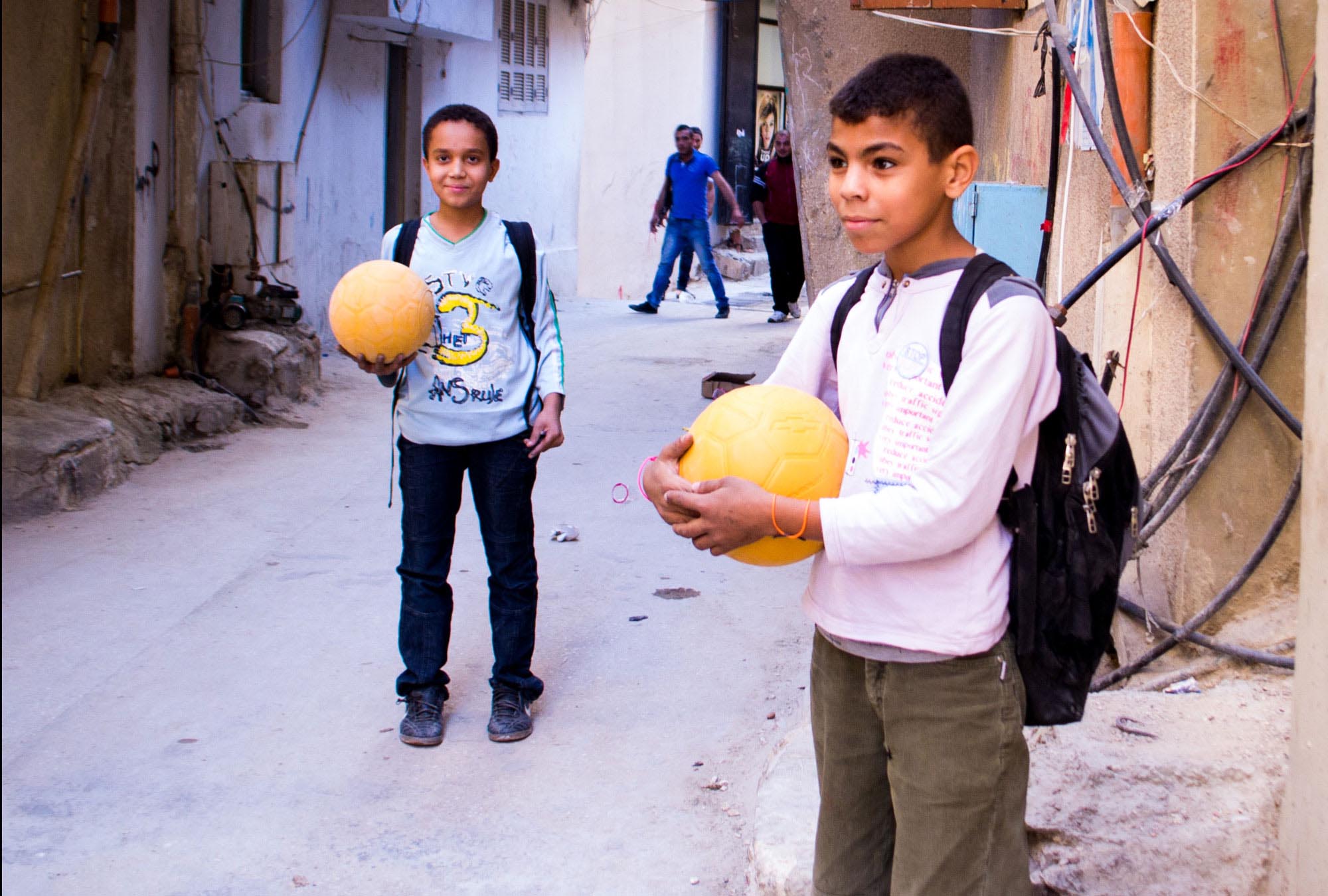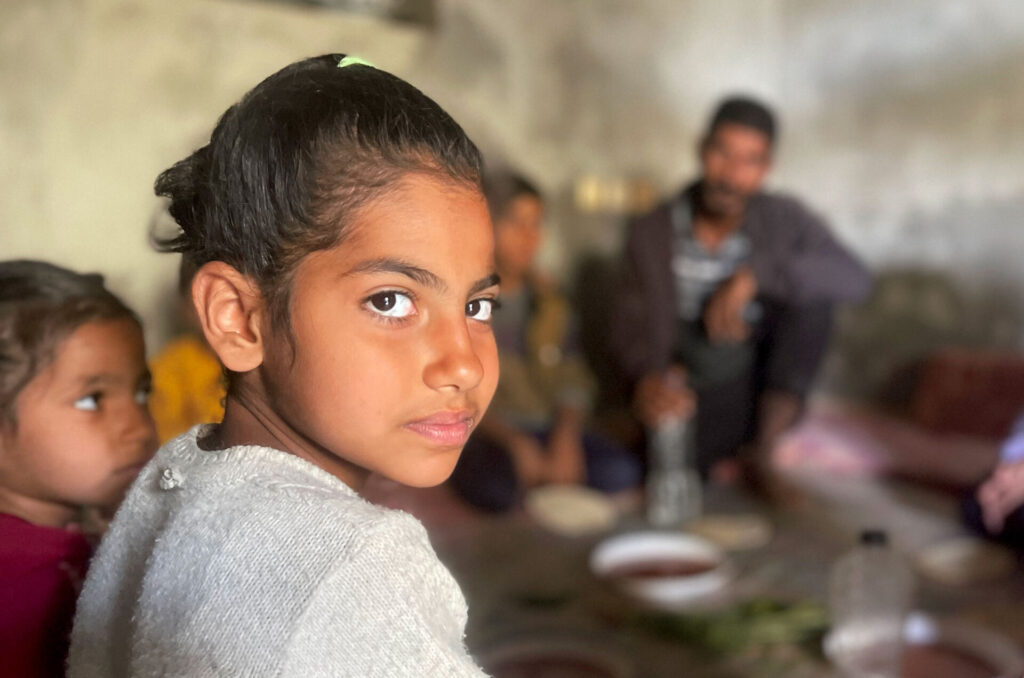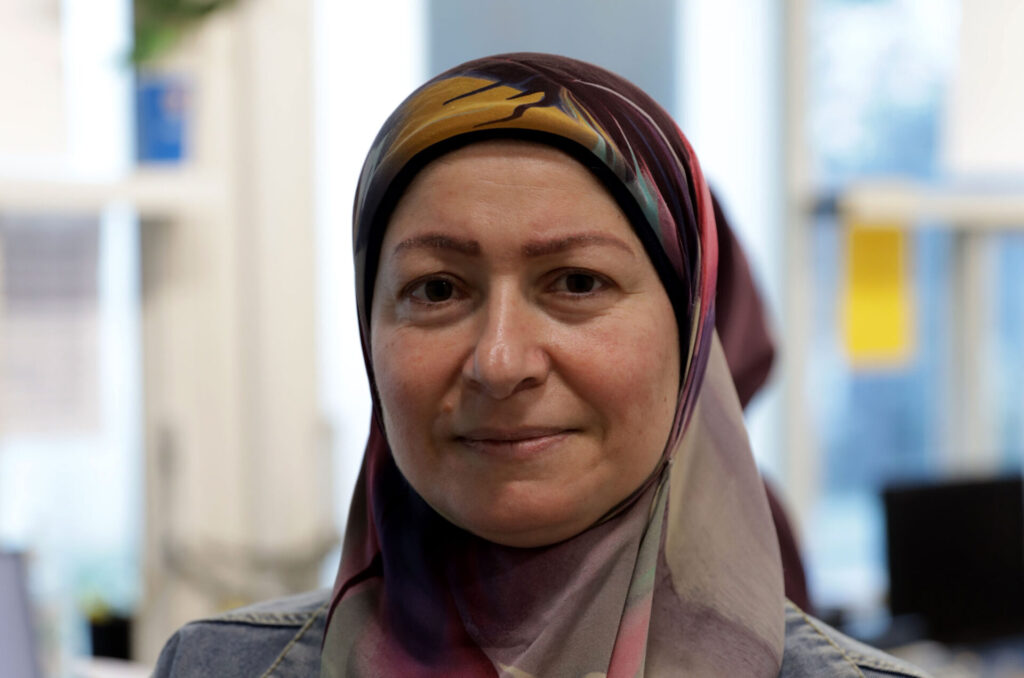COMMUNITY
New Soccer Balls Bring Joy to Palestinian Youngsters in Lebanon Camps
Oct, 2013
Hamza is ten years old. He has been living in an empty retail store in the Beddawi refugee camp in Lebanon since he fled the war raging in in Syria. Hamza’s family struggles to make ends meet; his father is disabled and cannot find a job to provide for Hamza, his two siblings and their mother. For refugees like Hamza and his family survival is the priority, so there often is little time for him to just have fun.
Thanks to a generous donation by International Relief & Development (IRD) and One World Futbol Project, Palestinian children in the refugee camps now have the opportunity to enjoy some fun-filled moments on the soccer field. Through its in-kind program, Anera has distributed 8,380 “virtually indestructible” soccer balls to children to preschools, schools, remedial centers, vocational training centers and sports clubs across Lebanon. More than 1,000 were delivered to Beddawi refugee camp in northern Lebanon.
“I used to have a ball, but it deflated when it got stuck in the elevator,” explains eight-year-old Ahmed from Beddawi camp. He had a hard time believing this ball could be any different. “What if a car runs over it or it gets stuck on barbed wire?”
But Ahmed discovered the new balls will keep bouncing back, even under extreme conditions. The unique design and specialized foam material are a perfect match for children playing in the camp’s uneven, rock-filled streets and rubbish-strewn lots.
Sports as a Learning Tool
Walking through the narrow streets of Beddawi camp now, it’s hard to miss the bright orange soccer balls. Children take them everywhere, as one young boy explains. “I take my soccer ball with me to school so I can play during breaks and on my way home.”
The soccer balls are also a useful learning tool. The Community-Based Rehabilitation Association (CBRA) uses sports to help empower children with learning difficulties.
In addition to improving physical agility, sports also help the children focus, teach values and encourage interaction with other children.
Nine-year-old Farah from Syria suffers from a major scoliosis that impedes her mobility. She has trouble communicating with others. Her face lights up when she receives a soccer ball. Since she arrived in Beddawi camp last June from Syria, CBRA social workers have helped her cope with her disabilities. Playing with the ball, they say, will contribute to refining her gross motor skills and help her interact with peers through games.
Encouraging Gender Equality
Najah Sleiman is field coordinator for Anera’s remedial education program. She explains that girls in the camps are not often encouraged to play sports so Anera is working with its community-based partners to integrate sports into remedial classes.
Najah is pleased with the results: “Today, all 14 girls in the CBRA program have received a soccer ball. And you can see how happy they are.”
She points to the girls playing soccer outside who show a lot of dexterity with their hands and feet and explains that they have been playing on a girls’ team that was started about a year ago. Young Shaima pauses after showing off her skills. “I love sports and I’ve been playing on a girls’ team for a year now.” Her friend Nour joined a few months ago. “We play every week,” she explains.
When the girls in another Anera-supported remedial class at Najdeh Association, got their new soccer balls, they didn’t even wait to go outside to try them out. They began bouncing them against the wall, sending echoes of their joyful play throughout the building.




